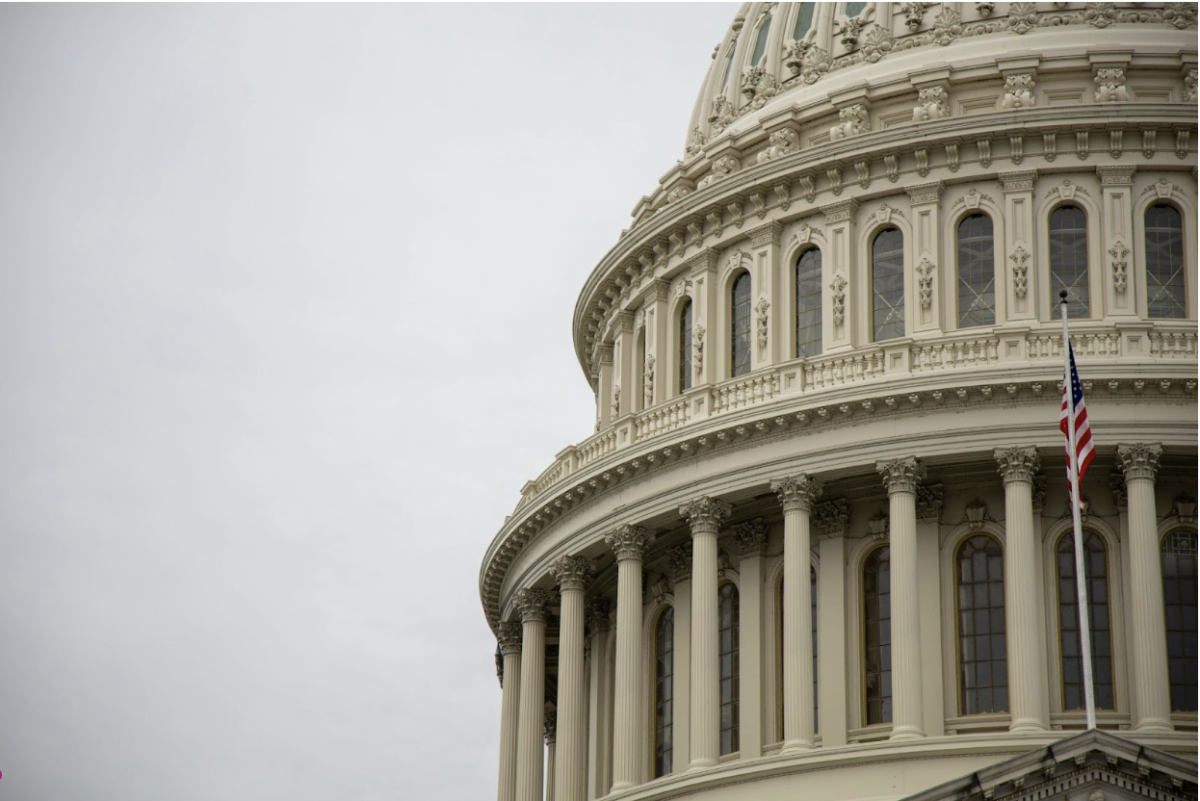When someone asks me what I study at school, I never hesitate to say political science, but I often find myself digressing and saying, “But I am a law-focused poli-sci student, I am not one of those political science majors.” Nearing the completion of my sixth semester at John Carroll University, this statement is no lie. I haven’t worked on any election campaigns and I am not affiliated with a political party, but that does not mean I am not paying attention to politics. In reality, it’s simple.
I hate American politics.
I have no regrets about choosing my major, as I chose it for the idealism behind the discipline. Political science has taught me to be a critical thinker. I believe in the power of democracy, public service and positive change. However, I quickly realized that in the United States, positive change only exists in our minds. I am not alone in these beliefs.
A recent poll by the PEW Research Center found that only 4% of American adults believe the political system is functioning extremely or very effectively, with an additional 23% stating it functions somewhat well. However, a significant majority (63%) express little to no confidence in the future of the U.S. political system. Moreover, merely 16% of the public trusts the federal government always or most of the time.
These levels of trust are among the lowest levels recorded in nearly seven decades; 86% of Americans polled agreed that “Republicans and Democrats are more focused on fighting each other than on solving problems.”
These conditions should come as no surprise given how the electoral landscape has changed in recent years. In Citizens United v. FEC (2009), the U.S. Supreme Court ruled that independent investments in political campaigns by corporations, nonprofit organizations, labor unions and other associations are protected by the First Amendment.
This decision led to more dark money—spending on political matters, where the source of the money is not disclosed to the public—as well as more pressure on candidates to appease their donors and it transformed elections into a battleground for corporations and organized interest groups.
Judicial elections, along with most government processes, have become shockingly politicized. In the 2021-2022 election cycle, candidates, interest groups and political parties spent $100.8 million on state supreme court elections alone—double what was spent the previous election cycle. Outside interest groups accounted for $45.7 million of all money spent.
Looking at recent articles that reference federal judges or justices on the Court, almost all of them associate the judge with the president who appointed them. Judges are supposed to be apolitical. However, some argue judges and the justices of the Court are increasingly motivated by personal beliefs and ideology; essentially becoming “politicians in black robes.”
In recent years, the Electoral College has played an exaggerated role in the outcomes of presidential elections. In 2016, Hilary Clinton won the popular vote but Trump won more votes in the Electoral College and ascended into the presidency. I struggle to see how that is democratic and so do 65% of U.S. adults, who feel the winner of the presidential election should be the winner of the popular vote.
Americans also distrust the Supreme Court at historically high levels. Another PEW Research Center survey found that only 44% of Americans express a favorable opinion of the Court, while 54% have an unfavorable view. For reference, in 1987, 76% of Americans expressed a favorable view of the Court. These issues go beyond the Supreme Court to criminal justice in general. A Gallup Poll found that 49% of surveyed Americans think the criminal justice system is fair—a 22% decrease from 2003.
72% of Americans have a negative view of Congress, the first branch of government mentioned in the U.S. Constitution, compared to 1987 when 74% of Americans had a positive view. Surprisingly, Republicans and Democrats agree on this. In Congress, there is an institutional inertia— there is no movement towards solving any significant problems.
However, we cannot have a conversation about any of these problems even though Congress, the courts and the president are not solving them. The root of our problems is that we don’t agree on the truth. A debate without any agreed-upon facts is just an emotional argument. Look back on the Jan. 6 Capitol Riots. It’s been three years and there is a shocking lack of any sort of general consensus on what we should actually call it! Some call these people patriots, others call them insurrectionists. Regardless, we are stuck disputing what label we should stick on it instead of recognizing people who lost their lives and how we can avoid a recurrence. If that is where we start our conversations, we cannot expect them to produce anything productive.
My views are somewhat cynical and I offer few solutions as I lack the knowledge to provide such answers, but I am not without hope. I still believe in the fundamental ideals of American politics, even if we have lost sight of them. The study of politics relies on critical analysis and skepticism. We need to question authority, challenge conventional wisdom and seek alternative perspectives.
But we cannot do this without actually being open to being proven wrong; that’s part of the problem as another survey found that 65% of Americans believe they are above average in intelligence. The reality is that we, myself included, most likely are not the smartest ones in the room.
The only answer I can offer comes from my education. Political science encourages an understanding of all perspectives: we need to cultivate more empathy for one another and be understanding and open to change. This current state of polarization will continue if ‘we the people’ are not willing to take small steps to bridge the gap between the parties.
So, I hate American politics. I will not diverge from that claim. However, I will not ignore the issues that confront me. My “hate” does not mean I’ve given up hope. It’s quite the opposite, actually. I have hope that U.S. politics can be better.




JCU Student • Apr 16, 2024 at 4:12 pm
I call the people who participated in the Jan 6 riots terrorists!
Ray Biase • Mar 25, 2024 at 11:18 am
Great article. I suggest another article on the reason for and the importance of the Electoral College.